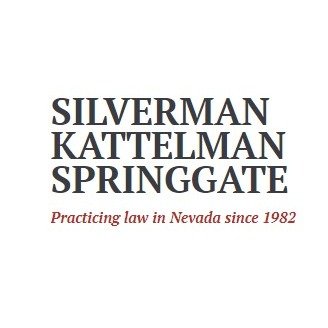Best Collaborative Law Lawyers in Nevada
Share your needs with us, get contacted by law firms.
Free. Takes 2 min.
Free Guide to Hiring a Family Lawyer
Or refine your search by selecting a city:
List of the best lawyers in Nevada, United States
About Collaborative Law in Nevada, United States
Collaborative Law is an alternative dispute resolution process that empowers parties to resolve legal issues amicably without going to court. In Nevada, Collaborative Law is most commonly used in family law matters, like divorce, child custody, and support cases. This process involves both parties and their attorneys signing a participation agreement to work together cooperatively, share information transparently, and agree not to litigate. If the process fails and parties must go to court, the collaborative lawyers must withdraw, ensuring everyone stays committed to negotiation. Collaborative Law emphasizes respectful communication, creative problem-solving, and outcomes tailored to the needs of both parties, especially when children are involved.
Why You May Need a Lawyer
There are several situations where you may benefit from the guidance of a Collaborative Law attorney in Nevada:
- You are seeking a low-conflict divorce or separation where both parties intend to cooperate.
- You want to negotiate child custody, parenting plans, and support arrangements in a constructive environment.
- You wish to resolve property and asset division without contentious litigation.
- You are dealing with complex family dynamics and need neutral experts, like financial advisors or child specialists, to facilitate agreements.
- You have privacy concerns and prefer to keep personal matters out of public court proceedings.
- You need help understanding legal rights and responsibilities under Nevada law, while focusing on mutual agreements.
A skilled Collaborative Law attorney can represent your interests, help you understand your options, and support the creation of lasting, fair solutions with less stress and expense than traditional litigation.
Local Laws Overview
Nevada follows the Uniform Collaborative Law Act (UCLA), which lays out the framework for collaborative practice in the state. Key aspects relevant to Collaborative Law in Nevada include:
- Participation Agreement - Both parties and their lawyers must sign a legally binding collaborative agreement. This agreement sets out the obligations for full disclosure, respectful communications, and withdrawal from litigation.
- Scope of Process - Collaborative Law is available primarily for family law disputes but can be used for other civil matters as agreed upon by both parties.
- Confidentiality - All discussions and documents exchanged during the collaborative process are confidential and not admissible in court if the process breaks down.
- Disqualification Requirement - If either party decides to terminate the collaborative process and pursue litigation, both collaborative lawyers must withdraw and cannot continue to represent their respective clients in court proceedings for that matter.
- Use of Experts - The process often includes neutral experts who help parties reach agreements on finances, child custody, or emotional matters.
- Good Faith Negotiation - Both parties are required to negotiate honestly and respectfully for the process to succeed.
Nevada’s laws support Collaborative Law as a voluntary, client-driven process designed to minimize conflict and benefit all involved, especially children.
Frequently Asked Questions
What kinds of cases can be resolved using Collaborative Law in Nevada?
Collaborative Law is commonly used for divorce, child custody, child support, property division, and other family law matters. It may also be suitable for other civil disputes if both parties agree.
How is Collaborative Law different from mediation or litigation?
Collaborative Law is a cooperative process where both parties, with their lawyers and neutral professionals, work together to reach an agreement. Unlike mediation, each party has lawyer representation throughout, and unlike litigation, it avoids going to court altogether.
Do I need to go to court if I use Collaborative Law?
If the collaborative process is successful, you will not need to appear in court except for the final uncontested approval of your agreement by a judge. The goal is to resolve all issues outside the courtroom.
Are collaborative agreements legally binding?
Yes, once an agreement is reached and signed by both parties and their lawyers, it is submitted to the court for approval and becomes legally binding, just like settlements in traditional litigation.
What happens if the collaborative process fails?
If either party decides to stop the process and go to court, the collaborative lawyers must withdraw. Both parties will need to hire new attorneys for litigation, as required by Nevada law.
How do I find a Collaborative Law attorney in Nevada?
You can search for attorneys who are members of the Nevada Collaborative Divorce Professionals or seek recommendations from the State Bar of Nevada. Choose a lawyer specifically trained in collaborative practice.
Is Collaborative Law faster and less expensive than litigation?
In many cases, yes. Collaborative Law often leads to faster case resolution and lower costs because it avoids protracted court battles and focuses on negotiated solutions.
What professionals are involved in the Collaborative Law process?
The process usually includes each party’s attorney and may involve neutral professionals, such as financial advisors, child specialists, or mental health coaches, to address specific issues.
Can I use Collaborative Law if there is a history of domestic violence or abuse?
Collaborative Law may not be suitable where there is a significant power imbalance or history of abuse. Your attorney can help assess if it is appropriate for your situation and may suggest alternative dispute resolution methods.
Is everything discussed in the Collaborative Law process confidential?
Yes, information shared during collaborative meetings is confidential and cannot be used as evidence if the matter later goes to court. This encourages open communication and problem-solving.
Additional Resources
For more information and support on Collaborative Law in Nevada, consider the following resources:
- Nevada Collaborative Divorce Professionals (NCDP) - An association of collaboratively trained professionals who offer guidance and representation throughout Nevada.
- State Bar of Nevada - Family Law Section - Provides referrals to attorneys experienced in Collaborative Law and other family law matters.
- Nevada Judiciary - Offers information on divorce, custody, and court-approved forms required to finalize agreements.
- Uniform Law Commission - Shares reference materials for the Uniform Collaborative Law Act adopted in Nevada.
- Local legal aid organizations - Offer support and resources if you need financial assistance with legal representation.
Next Steps
If you are considering Collaborative Law for your legal issue in Nevada, here are the recommended steps to take:
- Assess whether you and the other party are willing to commit to an open, cooperative process.
- Contact a Nevada attorney specifically trained in Collaborative Law. You may consult the State Bar of Nevada or local collaborative practice groups for referrals.
- Learn about the process, costs involved, and what will be expected from all participants.
- Discuss your goals, concerns, and any special issues with your lawyer to determine if Collaborative Law is the best fit for your situation.
- If both parties agree, begin the process by signing a participation agreement and scheduling initial collaborative meetings with the attorneys and any necessary neutral professionals.
- Work together to reach a comprehensive and lasting agreement, prepared for court approval if required.
Collaborative Law can be a positive and constructive way to resolve disputes in Nevada, especially when facilitated by experienced professionals. Taking the right steps early can help protect your interests and those of your family.
Lawzana helps you find the best lawyers and law firms in Nevada through a curated and pre-screened list of qualified legal professionals. Our platform offers rankings and detailed profiles of attorneys and law firms, allowing you to compare based on practice areas, including Collaborative Law, experience, and client feedback.
Each profile includes a description of the firm's areas of practice, client reviews, team members and partners, year of establishment, spoken languages, office locations, contact information, social media presence, and any published articles or resources. Most firms on our platform speak English and are experienced in both local and international legal matters.
Get a quote from top-rated law firms in Nevada, United States — quickly, securely, and without unnecessary hassle.
Disclaimer:
The information provided on this page is for general informational purposes only and does not constitute legal advice. While we strive to ensure the accuracy and relevance of the content, legal information may change over time, and interpretations of the law can vary. You should always consult with a qualified legal professional for advice specific to your situation.
We disclaim all liability for actions taken or not taken based on the content of this page. If you believe any information is incorrect or outdated, please contact us, and we will review and update it where appropriate.
Browse collaborative law law firms by city in Nevada
Refine your search by selecting a city.












